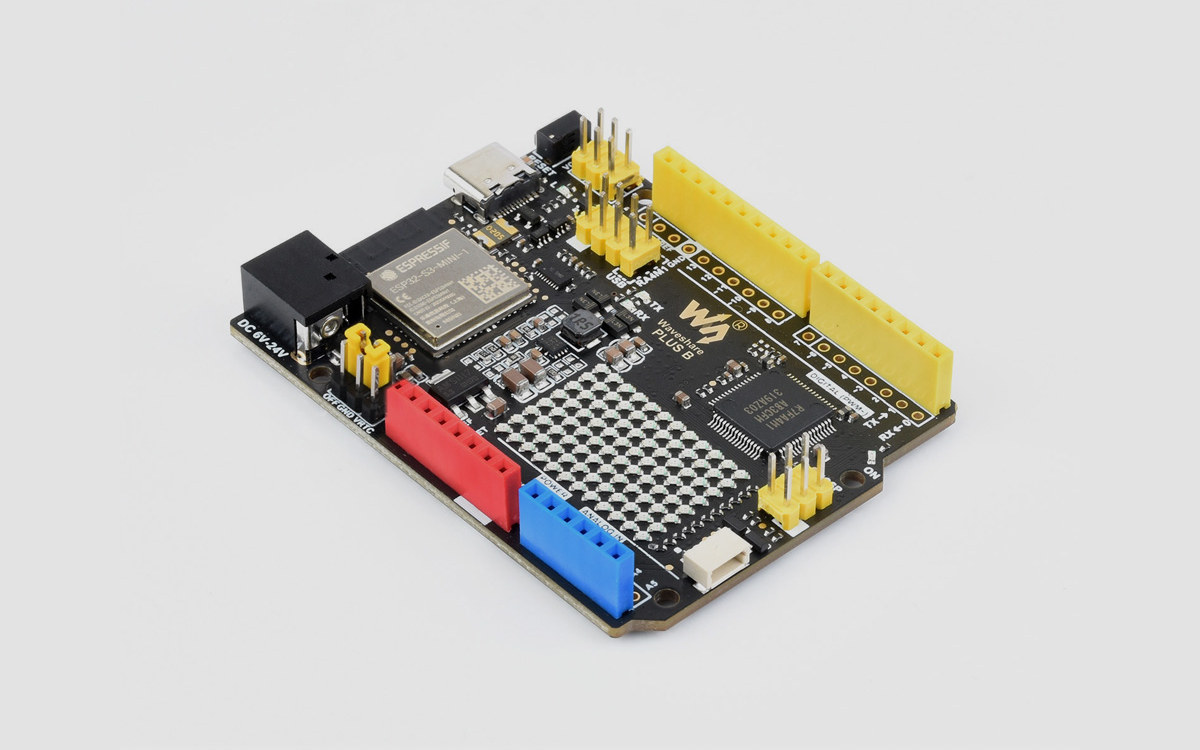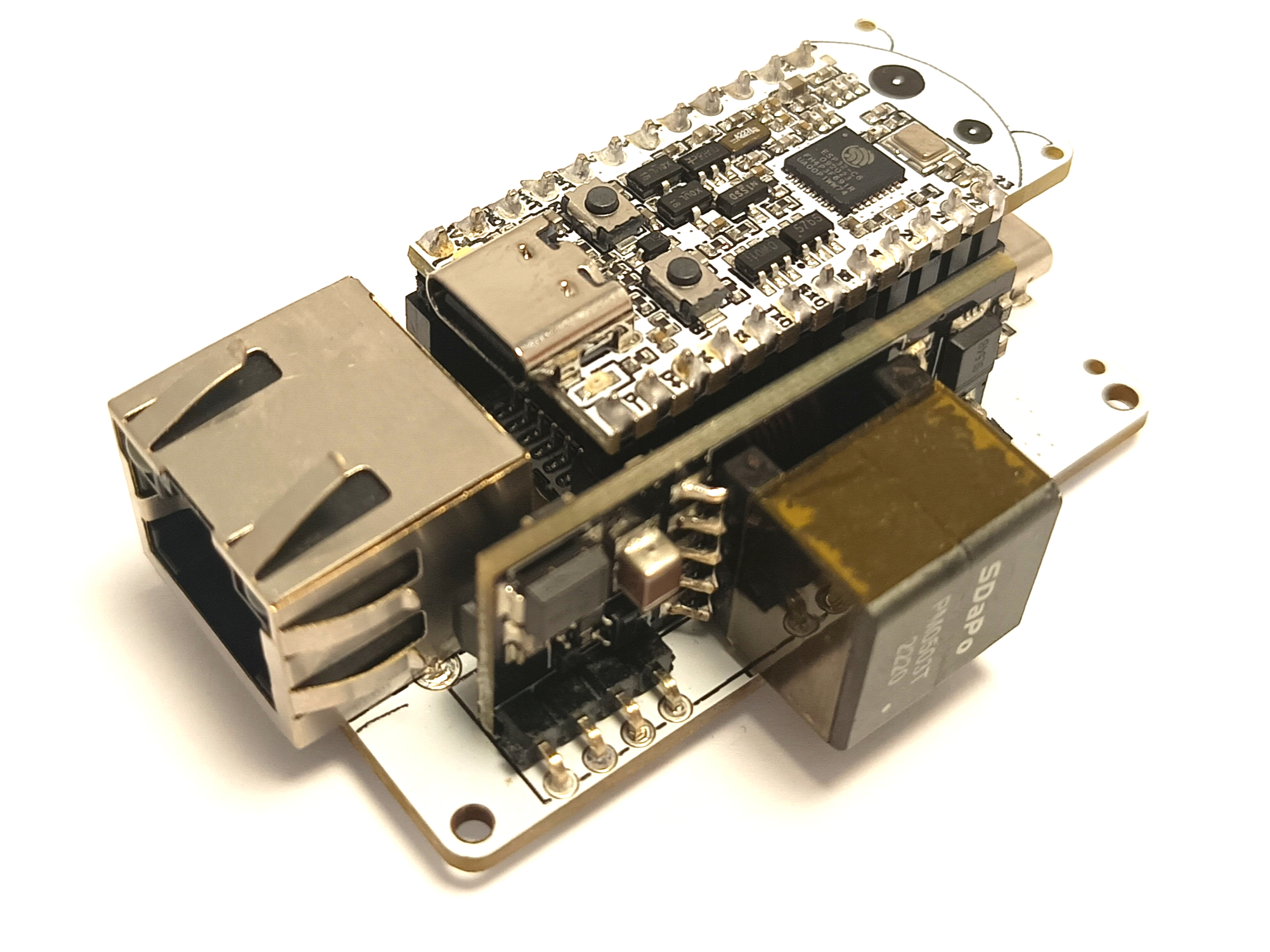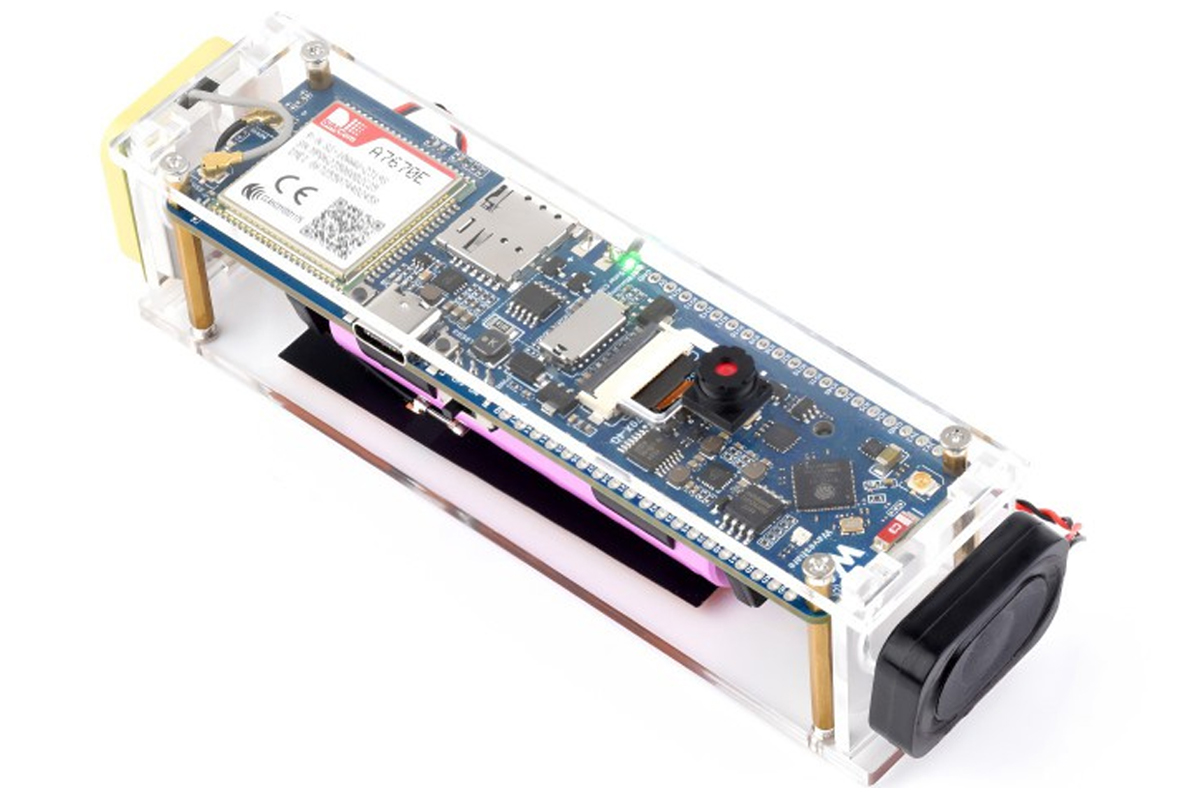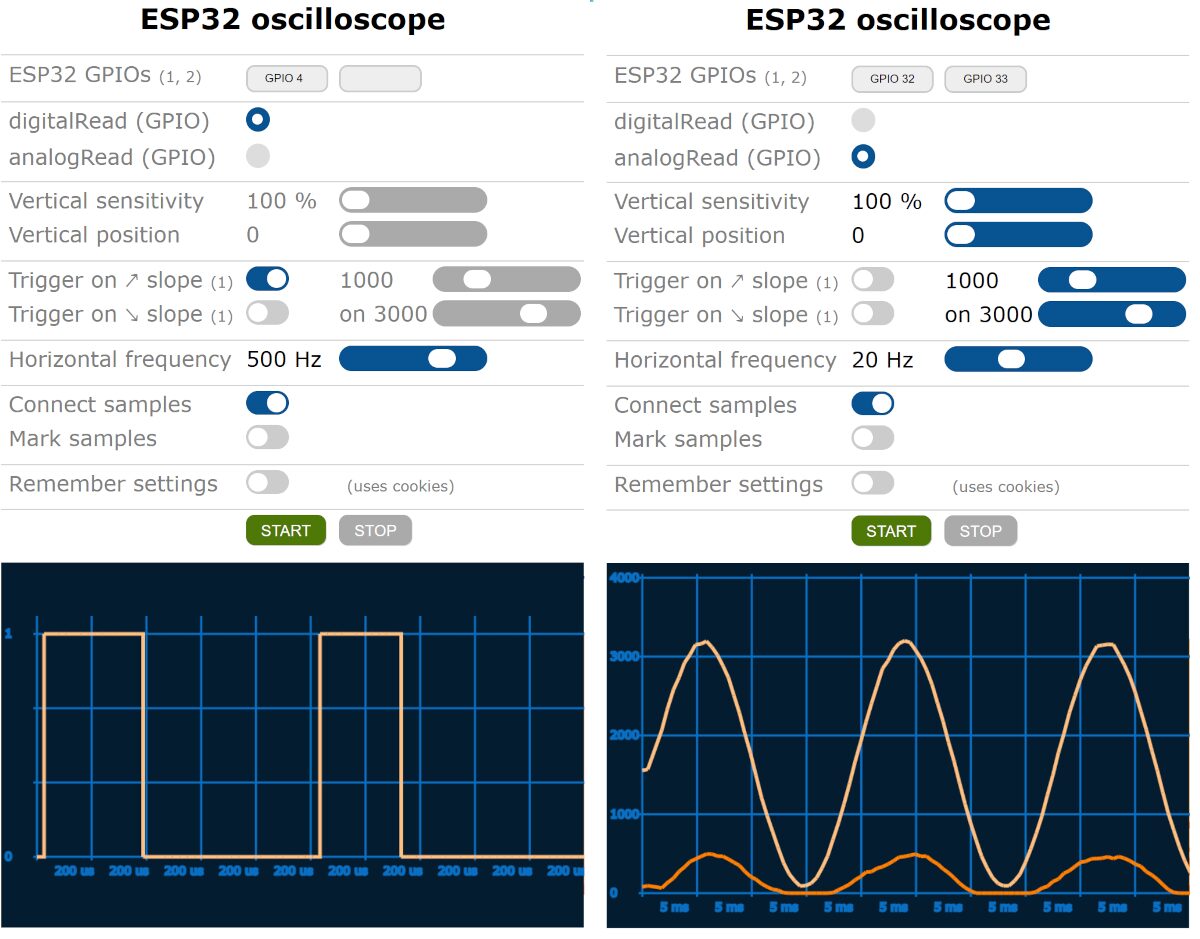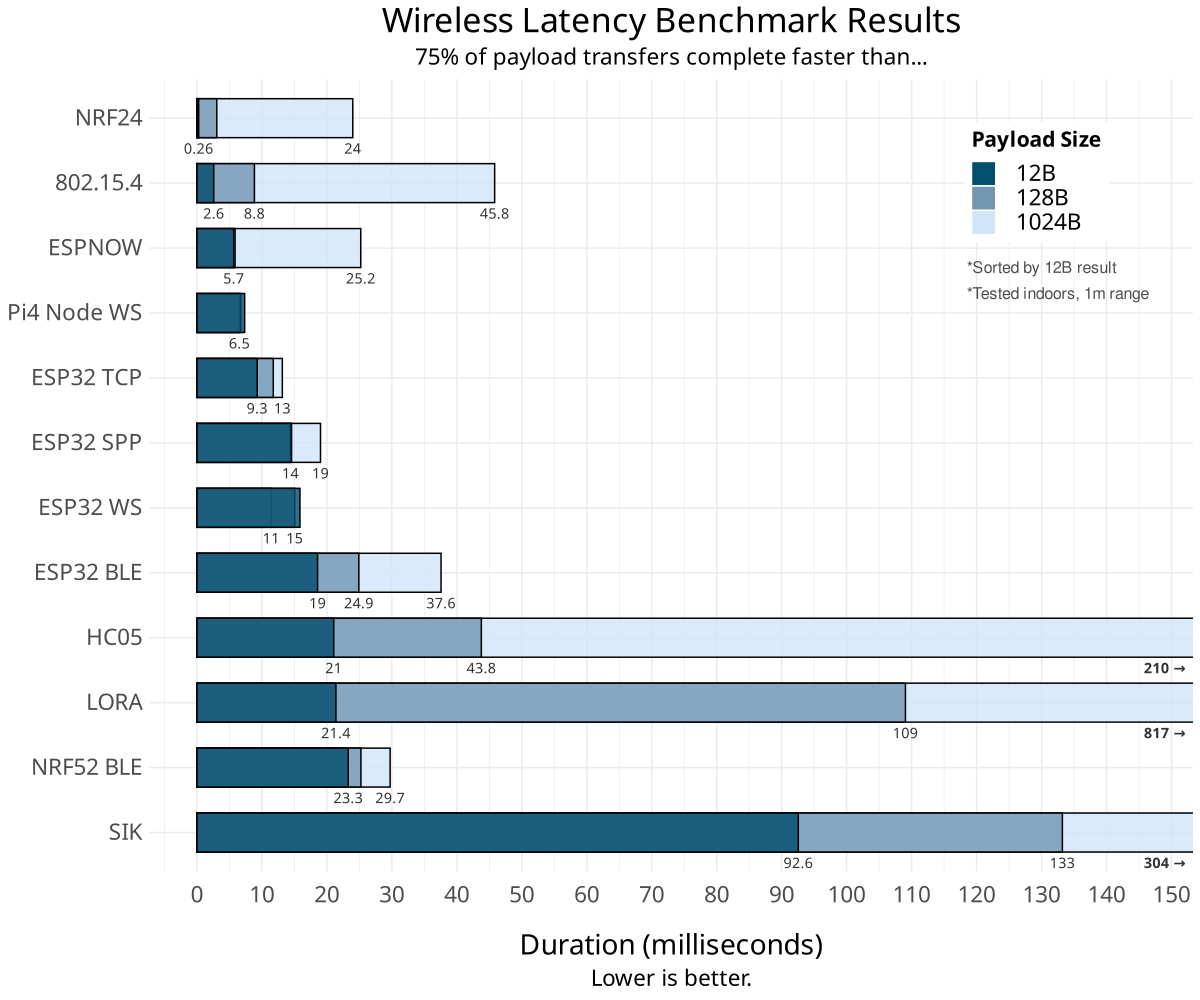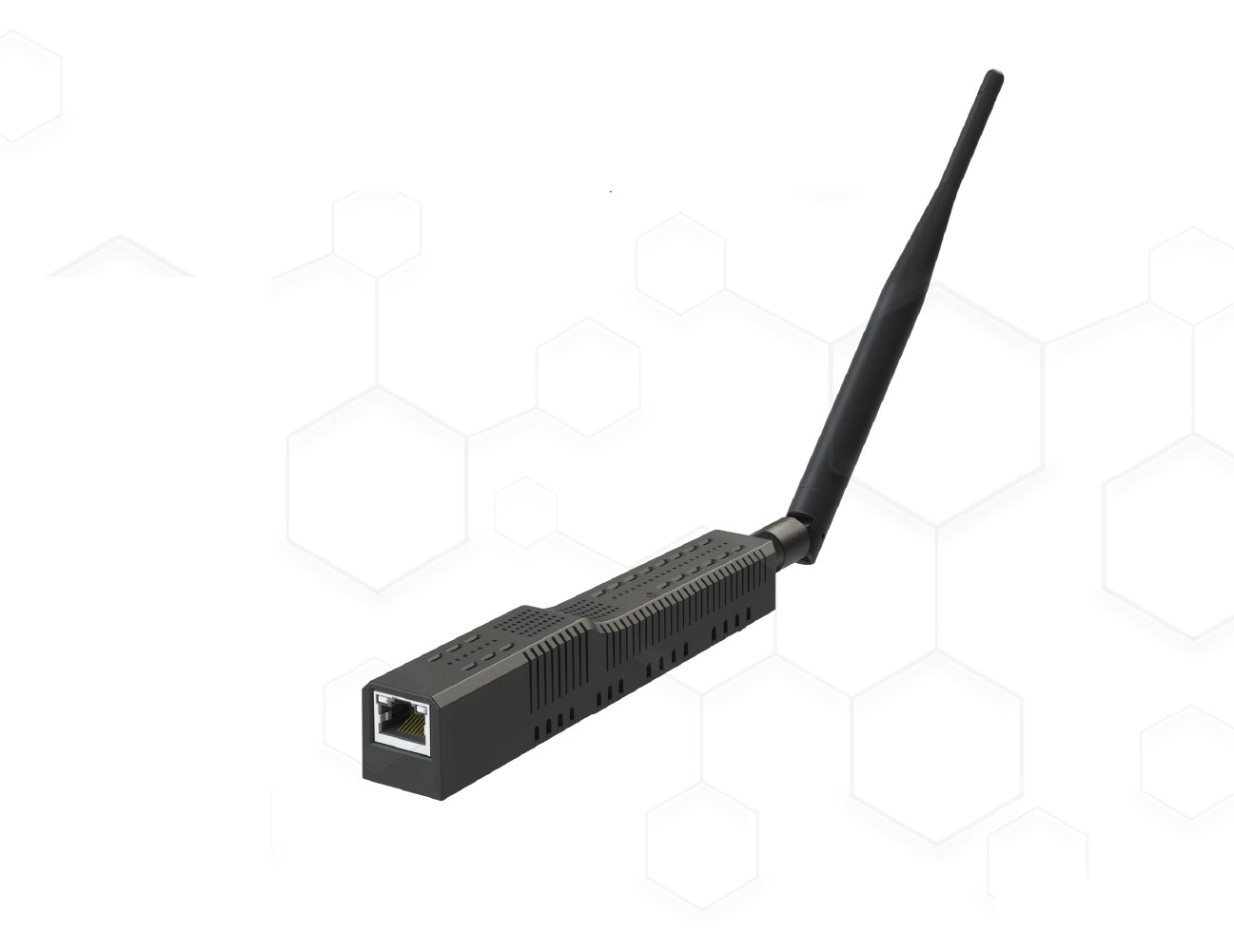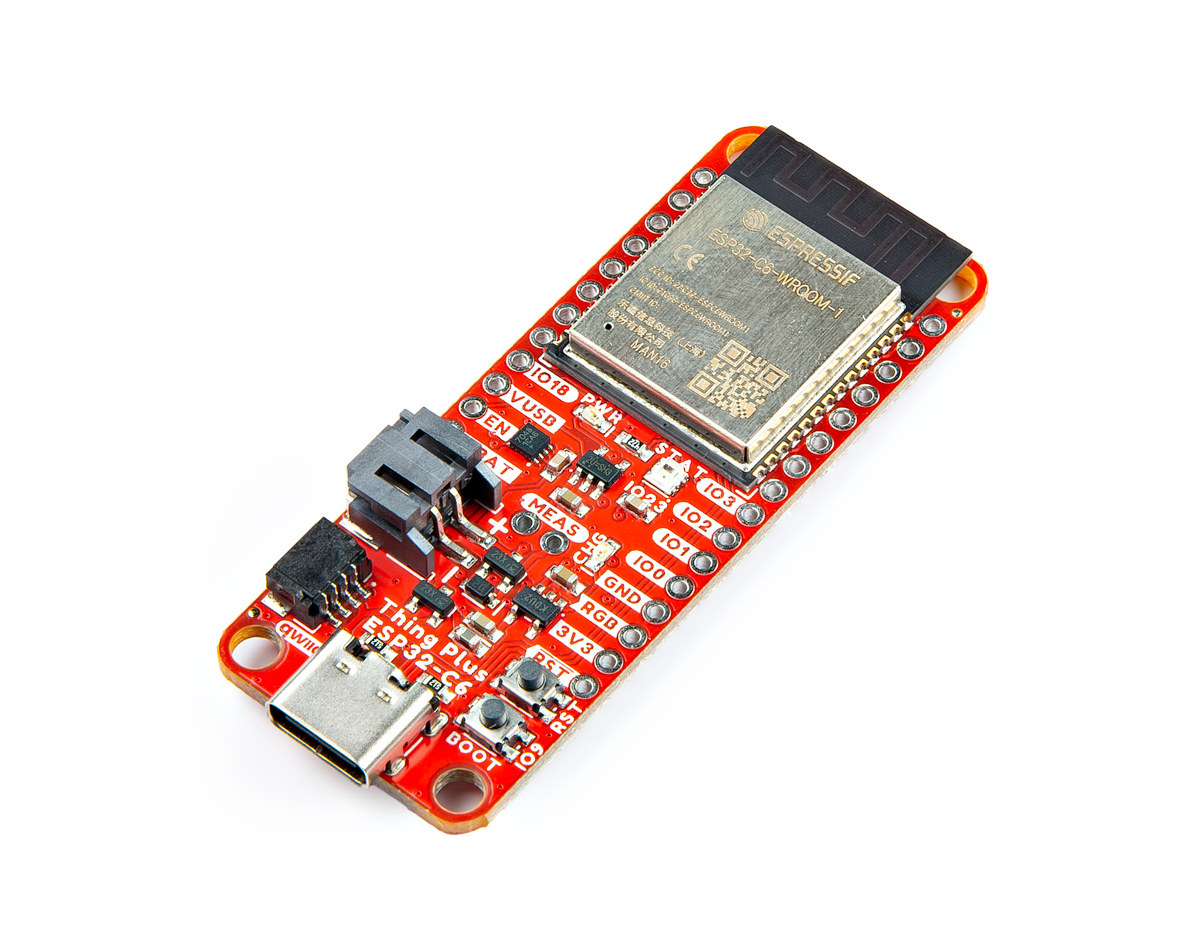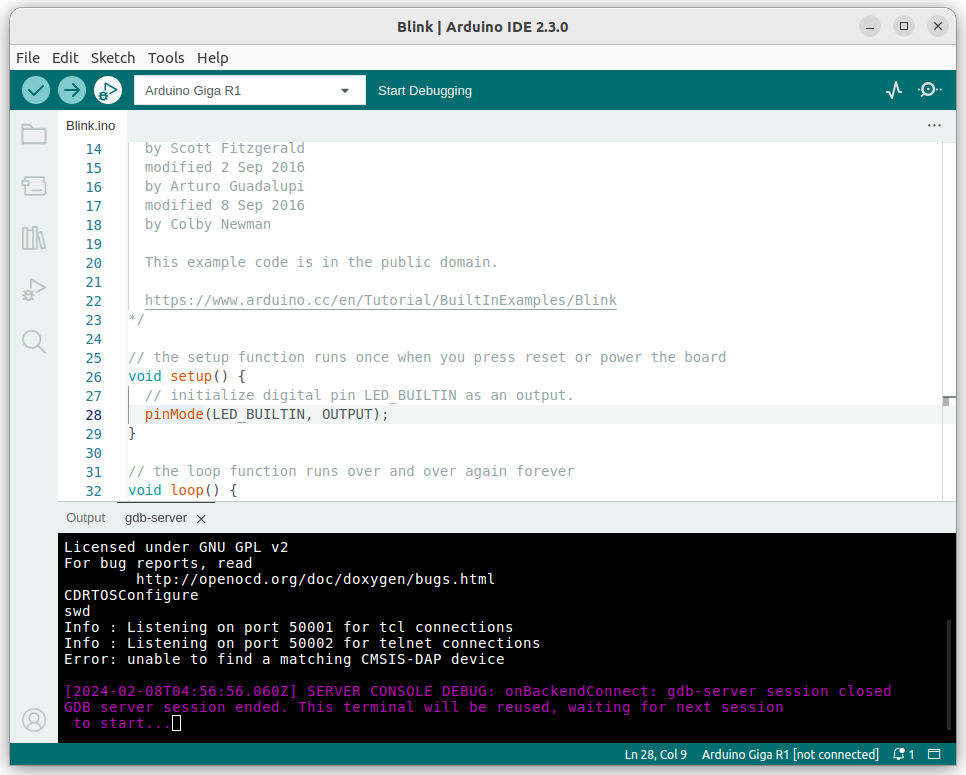Arduino board clones have been around for many years, but I don’t think I have ever seen clones of the new Renesas-based Arduino boards so far. Waveshare changes that with the R7FA4 PLUS A that clones with Arduino UNO R4 Minima, and the R7FA4 PLUS B board duplicating the Arduino UNO R4 WiFi. The Waveshare boards are not 100% clones with some small differences in the PCB layout, support for 5V and 3.3V shields, an additional 6-pin “power output header” with 5V, 3.3V, and GND signals, and a USB communication jumper to select between the Espressif ESP32-S3 and Renesas RA4M1 microcontrollers. Waveshare R7FA4 PLUS A and B specifications: Microcontroller – Renesas RA4M1 Arm Cortex-M4F MCU @ 48 MHz with 32KB SRAM, 256KB flash Wireless (B model only) – ESP32-S3-MINI-1 module based on ESP32-S3 dual-core Xtensa LX7 microcontroller with 512KB SRAM, 384KB ROM, WiFi 4 and Bluetooth 5.0 connectivity, PCB antenna […]
ESP32-C6-Bug WiFi 6, Bluetooth LE, and 802.15.4 board takes a PoE Ethernet shield (Crowdfunding)
We’ve already covered a range of ESP32-C6 boards, but none supporting Ethernet and PoE so far, and the ESP32-C6-Bug board brings that to the table thanks to the Esp32-Bug-Eth shield with a W5500 Ethernet chip, an RJ45 jack and a PoE power module. Like other ESP32-C6 devices, the little board supports Wi-Fi 6, Bluetooth LE 5, as well as Thread and Zigbee through its 802.15.4 radio, but it also integrates some other interesting features such as castellated holes for easy soldering on a carrier board and support for LiPo batteries with built-in battery charging and protection circuits. ESP32-C6-Bug board specifications: SoC – ESP32-C6FH4 MCU cores 32-bit RISC-V core @ 160 MHz 32-bit RISC-V core @ 20 MHz low-power coprocessor can run tasks even when the main system is in deep sleep state Memory – 512 KB SRAM Storage – 4 MB Flash Wireless – WiFi 6, Bluetooth LE 5, and […]
Waveshare ESP32-S3 4G dev boards feature LTE Cat-1, 2G, and camera support
Waveshare has recently launched two new ESP32-S3 4G dev boards – the ESP32-S3-SIM7670G-4G and the ESP32-S3-A7670E-4G. These boards support 4G LTE Cat-1, Wi-Fi, Bluetooth, and GNSS, and come with an OV2640 camera, and a battery holder for a 18650 battery. The main difference between the two is that the A7670E module also supports 2G GSM/GPRS/EDGE at 900/1800MHz while the SIM7670G module does not. The board has two rows of I/Os including GPIO, I2C, SPI, ADC, and USB 2.0. It also has a USB-C port for power and programming, a slot for a MicroSD card, and an option to connect an external speaker. There’s a USB switching IC and DIP switch for easily connecting the module to a PC for internet or debugging. Waveshare ESP32-S3 4G Dev Boards Specification: Communication module A7670E 4G – A7670E Cat-1 4G module supporting 4G Cat-1 + 2G networking, GNSS positioning, telephone calls, and SMS. SIM7670G […]
Esp32_oscilloscope Arduino firmware turns your ESP32 board into a web-based oscilloscope
Bojan Jurca’s “Esp32_oscilloscope” is an open-source Arduino sketch that can transform an ESP32 board into a web-based oscilloscope that works over WiFi. We had also written about the Scoppy project to turn the Raspberry Pi Pico W into a 2-channel oscilloscope, but there’s no reason the more powerful ESP32-series microcontroller could not be used for the same purpose, and Bojan’s Esp32_oscilloscope project does just that and works with ESP32, ESP32-S2, ESP32-S3 and ESP32-C3 boards using the I2S interface for fast data sampling. The project was initially designed to demonstrate the multitasking abilities of the ESP32 microcontroller with Arduino, but this evolved into an ESP32 oscilloscope firmware. It works both with output/PWM and input signals, digital (0 or 1) and analog (0 to 4095) signals, and the web interface shows up to 736 samples per screen although the sampling rate may not be completely constant all the time. To install it […]
Comparing the latency of various wireless standards
If you’ve ever wondered which wireless standard may deliver the smallest lag (latency) when transmitting small packets, we’ve now gotten an answer thanks to Scott at Electric UI who benchmarked various wireless links in common MCU development boards. More specifically the following hardware and wireless standards were tested: SiliconLabs 10×0-GM RF+8051 microcontroller with 240–960 MHz EZRadioPRO transceiver running SiK firmware HopeRF RFM95W LoRa module (on an Adafruit Breakout board) connected to an STM32F429 MCU Nordic Semi nRF24L01 2.4GHz transceiver module ESP32 board for ESP-NOW and WiFi testing is shown as ESP32 WS (WebSockets) or ESP32 TCP in the chart below. Raspberry Pi boards were also used for comparison ESP32-C6 board for 802.15.4 transfers (Thread) ESP32 and HC-05 modules for Bluetooth SPP (Serial Port Profile) ESP32 board with NimBLE and Bluedroid stacks and nRF52 for Bluetooth LE testing Here are the results for 12 bytes, 128 bytes, and 1024 bytes data transfers. […]
SMLIGHT launches Zigbee Ethernet/WiFi coordinators and USB adapters based on TI CC2652P7 or CC2674P10 wireless chips
SMLIGHT has recently released Zigbee Ethernet/WiFi/USB coordinators and USB dongles based on either Texas Instruments CC2652P7 or CC2674P10 wireless microcontrollers that update on the company’s SLZB-06 Zigbee 3.0 to PoE Ethernet, USB, and WiFi adapter and Silicon Labs EFR32MG21-based SLZB-07 Zigbee 3.0 USB adapter. That’s a total of four new devices with the SLZB-06p7 and SLZB-07p7 based on CC2652P7 and designed to work with vendor-agnostic software such as Zigbee2MQTT and Home Assistant ZHA, and the similar SLZB-06p10 and SLZB-06p10 based on the CC2674P10 whose Zigbee firmware is still under development according to SMLIGHT. SLZB-06p7/SLZB-06p10 Zigbee to Ethernet/WiFi/USB coordinator SLZB-06p7/SLZB-06p10 specifications: Wireless SoCs SLZB-06p7 – Texas Instruments CC2652P7 Arm Cortex-M4F microcontroller @ 48-MHz with 704KB flash, 256KB ROM for protocol and library functions, 8KB of SRAM, integrated +20 dB power amplifier, Bluetooth 5.2 Low Energy, Matter, Thread, Zigbee 3.0 SLZB-06p10 – Texas Instruments CC2674P10 Arm Cortex-M33 microcontroller @ 48 MHz with […]
SparkFun Thing Plus – ESP32-C6 board comes with 16MB flash, LiPo battery support
SparkFun has launched yet another ESP32-C6 board with the “Thing Plus – ESP32-C6” based on the ESP32-C6-WROOM-1-N16 module with 16MB flash and a PCB antenna and range of I/Os and power options. The board features 28 through holes with up to 23 multi-function GPIOs and a Qwicc connector for expansion, and supports 5V or LiPo battery power through respectively a USB-C port a 2-pin JST connector combined with a charging chip, and a fuel gauge. SparkFun Thing Plus – ESP32-C6 specifications: Wireless module – ESP32-C6-WROOM-1-N16 MCU – ESP32-C6 32-bit single-core RISC-V microcontroller with 2.4 GHz WiFI 6, Bluetooth 5 LE, and 802.15.4 radio (Zigbee and Thread); Matter-compatible Storage – 16 MB flash PCB Antenna Storage – MicroSD card slot USB – 1x USB Type-C port for power and programming Expansion 12-pin + 16-pin headers with 23x multifunctional GPIOs Up to 7x 12-bit ADC channels Up to 2x UART channels (with […]
Arduino IDE 2.3 released with the Debug feature now considered stable
Arduino IDE 2.3 has just been released with a range of bug fixes and improvements, but the main change is that the debug feature is not experimental anymore and is now considered stable. Bug fixes include addressing CVE-2023-4863 security flaw (See GitHub for related commits) and based on the wording used in the announcement it looks to be the only one… So the main news is that the Debug feature is now fully incorporated into the IDE. But what is it exactly? The new documentation website explains that Arduino CLI 0.9.0 and Arduino IDE 2.x support “sketch debugging” with openocd server. Arduino also explains it’s currently supported by Arduino boards based on the Mbed core including GIGA R1 WiFi, Portenta H7, Opta, Nano BLE, and Nano RP2040 Connect, and Renesas-based boards such as UNO R4 and Portenta C33 will get support very soon. The company also says they are working […]


